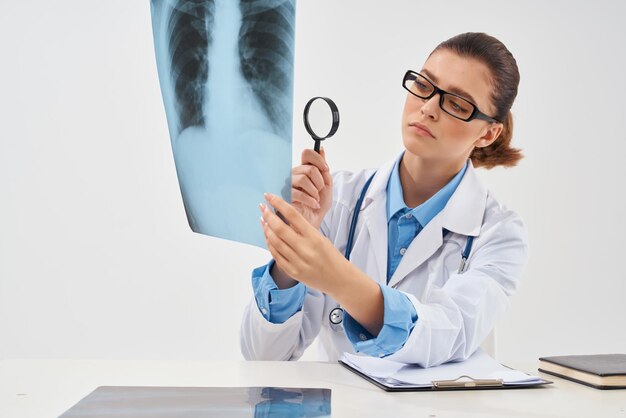Can a Lung Biopsy Cause Cancer to Spread? Understanding the Facts You Need to Know
Every year, millions of people undergo medical procedures to diagnose, treat, and manage various health conditions. Among these, lung biopsies are a common procedure for diagnosing lung cancer. But a pressing question often emerges for those facing this procedure: Can a lung biopsy cause cancer to spread? In this article, we'll explore this concern, providing insight into biopsies, their associated risks, and the latest medical perspectives. Let's dive into the details that illuminate this potential worry and separate myth from reality.
What is a Lung Biopsy?
A lung biopsy is a medical procedure conducted to obtain a small sample of lung tissue for examination. It is predominantly used to diagnose lung diseases such as cancer, infections, and other pulmonary conditions. Physicians may recommend a lung biopsy when imaging tests, like CT scans or X-rays, show abnormalities but don't provide a conclusive diagnosis.
Types of Lung Biopsies
Needle Biopsy: Often performed using a CT scan or other imaging techniques to guide the needle to the precise location.
Bronchoscopic Biopsy: Conducted during bronchoscopy, where a thin tube is passed through the nose or mouth into the lungs.
Open Biopsy: A surgical procedure where the chest is opened to access lung tissue, usually when a larger sample is needed.
Thoracoscopic Biopsy: Minimally invasive surgery using a thoracoscope through small chest incisions.
Each type of biopsy has its own application based on the patient's condition and the physician's objectives.
Do Lung Biopsies Really Cause Cancer to Spread?
The primary concern some have with biopsies involves the potential for cancer cells to spread during or after the procedure. This idea is based on the notion that the biopsy needle might disturb cancer cells, causing them to migrate to other parts of the body.
Current Medical Understanding
Rare Incidences: According to current studies, the risk of spreading cancer due to a biopsy is extremely low. For lung biopsies, such incidents are rare and are typically not a significant concern.
Advancements in Techniques: Modern medical techniques and advancements in equipment have minimized the physical disturbance involved, reducing the possibility of spreading any cancer cells.
Medical experts ensure to take elaborate precautions during biopsy procedures. This includes using specialized needles and techniques designed to mitigate such risks. The priority remains to ensure accurate diagnosis while maintaining patient safety.
Why Biopsies Remain Essential
Despite the concerns, lung biopsies are crucial for effective treatment planning. They provide definitive evidence required to confirm the presence and type of cancer, allowing doctors to tailor the appropriate treatment for the patient.
Benefits of a Lung Biopsy
Accurate Diagnosis: Helps in identifying the specific type of lung pathology, especially between benign and malignant conditions.
Guiding Treatment Plans: Determines the appropriate course of treatment based on biopsy results, whether it's surgery, chemotherapy, radiation, or watchful waiting.
Predicting Prognosis: Provides insights into how aggressive the disease might be, which can guide overall patient management.
Overcoming Anxiety Related to Lung Biopsy
It's natural to feel anxious about medical procedures. However, understanding what's involved can significantly ease that anxiety. Here are some steps to help manage apprehension related to a lung biopsy:
Educate Yourself: Learn all you can about the procedure, its necessity, and what to expect before, during, and after. The more informed you are, the more empowered you'll feel.
Communicate with Your Doctor: Discuss any fears or concerns with your healthcare provider. They're there to help you and can offer reassurance and advice.
Consider Support Groups: Connecting with others who've gone through similar experiences can offer comfort and practical advice.
Additional Considerations for Patients
As patients navigate the landscape of lung biopsies, various factors affect their decisions and experiences.
Discussing Risks and Benefits
It's vital to have open discussions with healthcare providers regarding the risks and benefits. Asking questions about other diagnostic options and understanding the import of biopsy results for the subsequent steps is critical.
Understanding Recovery and Aftercare
Knowing what to expect during recovery can aid in planning adequately for time off work, caring needs, and support systems. Understanding the potential short-term effects, like mild discomfort or bleeding, prepares patients better.
Should You Get a Second Opinion?
For those feeling unsure, seeking a second opinion may provide peace of mind. Another perspective can confirm the necessity of a lung biopsy or suggest alternative options.
Innovating for Safer Diagnostic Approaches
The medical community continues to seek innovative ways to improve procedures and reduce all associated risks, not just concerning cancer spread. Advances in technology, imaging, and minimally invasive techniques are at the forefront of these innovations. Research into liquid biopsies, which involve analyzing circulating tumor DNA in blood samples, offers another avenue for safer diagnostics but is still evolving.
Final Thoughts and Takeaways
When faced with the daunting prospect of a lung biopsy, understanding the facts and scope of the procedure is crucial. While concerns about cancer spreading due to a biopsy are understandable, they are largely unfounded. Modern medical practices prioritize safety and accuracy, making these procedures as minimally invasive as possible. By staying informed, discussing openly with healthcare providers, and considering all options, patients navigate their diagnostic journeys confidently and effectively.
Key Takeaways and Practical Tips:
Understand the Procedure: Knowing the different types of lung biopsies and their purposes can help set realistic expectations.
Discuss Concerns Openly: Communicate any fears about cancer spread or other risks directly with your healthcare team.
Stay Informed About Advances: Keep abreast of the latest developments in diagnostic technology and techniques that might serve as alternatives or improvements upon current methods.
Consider Support Systems: Utilize the circle of friends, family, or support groups to ease the emotional journey.
Innovations Promise Less Risk: Future diagnostic advances may offer even less invasive ways to achieve accurate diagnoses.
Empower yourself with knowledge while relying on the expertise of medical professionals for the best possible outcomes. 📚🩺

Related Articles
